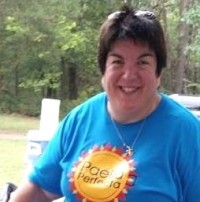You may wonder how the stuttering therapy program at Hollins Communications Research Institute (HCRI) can be effective with so many persons who stutter. After all, doesn’t each individual who stutters have a unique pattern of disfluencies?
HCRI’s 12-day therapy program is called the Hollins Fluency System III: High Definition Speech Reconstruction for Stuttering. It has proven effective in thousands of stuttering cases that range from mild to severe. What makes the stuttering therapy effective lies in understanding the common, central defining feature that is present among those with developmental stuttering. This feature involves muscle contractions that are not correct for the speech sounds being attempted.
These faulty contractions drive the speaker’s vocal tract into positions that are not correct for the speech sounds being attempted. There are many faulty vocal tract positions that can be seen across persons who stutter. After all, many different muscles can be involved in forcing the vocal tract into incorrect positions. Thus, observations of stuttering appear to indicate that different stutterers show idiosyncratic features in their disfluent speech. This would appear, at first, to represent a potential problem when it comes to treating stuttering.
However, the key to the success of the HCRI stuttering therapy program is that we all must share closely similar vocal tract positions in order to produce recognizable, fluent speech. The HCRI program, through precise, systematic training, brings each therapy participant’s muscle-force patterns and vocal tract shapes into conformance with those that are proven to generate fluent speech.
In effect, by understanding the essential defining features across those who stutter, it becomes possible for a single therapy to be highly effective with the many variations observed in stuttering.
How HCRI Therapy Works to Address the Central Defining Feature of Stuttering
As shared above, Hollins Fluency System III helps clients with all forms of developmental stuttering learn how to replace faulty muscle contractions that cause stuttering with new muscle behaviors that generate fluent speech. By literally “reconstructing” muscle actions that drive movements of the tongue, lip, jaw, soft palette, and vocal folds, therapy participants can achieve and sustain the ability to speak fluently.
During HCRI’s 12-day stuttering therapy program, expertly trained clinicians work one-on-one with clients to instruct, evaluate and guide them through each tested step in the institute’s stuttering treatment system. In addition to personalized coaching, the use of proprietary computer software and a mobile app during therapy help make fluency acquisition easier and more precise. Post-therapy clinical support and a comprehensive package of practice tools help keep clients on track with fluency throughout their lives.
No other stuttering treatment replicates the sophistication of the Hollins Fluency System III therapy program – or the individualized approach from which clients benefit.
What to Expect When You Attend HCRI Therapy >>
HCRI Stuttering Therapy Outcomes
Research studies demonstrated that 93% of therapy participants achieved fluency by the end of their 12-day program. These individuals represented a broad spectrum of stuttering types and severities. When evaluated two years after therapy, 75% of clients maintained their fluency using the skills acquired during HCRI therapy.
About HCRI
HCRI was founded by Ronald L Webster, Ph.D. in 1972 to investigate stuttering through scientific discovery and treatment innovation. Virginia-based HCRI, a 501(c)(3) charitable organization, has become a leader in stuttering research and the development of innovative, scientifically derived therapy approaches.
Clinicians at HCRI have treated more than 7,000 individuals who stutter. Clients come from all walks of life and include broadcasters, teachers, engineers, musicians, students, doctors, military personnel, business professionals, police officers, actors, a supreme court nominee, and even royalty.
HCRI is located at 7851 Enon Drive, Roanoke, Va. 24019. For more information, visit www.stuttering.org or contact HCRI at (540) 265-5650 or info@stuttering.org.


.jpg)
